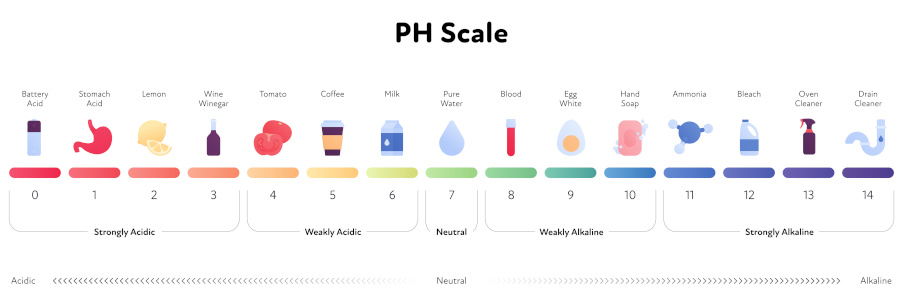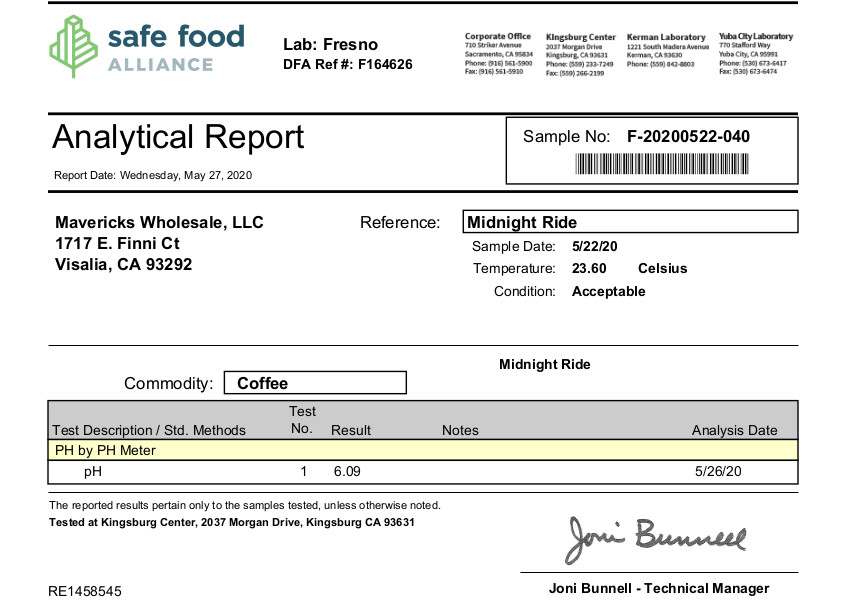
Why does coffee upset your stomach?
Why does coffee upset your stomach?
Do you love coffee but notice is can make you feel bad. Although the benefits of caffeine have been shown by dozens of studies including cancer reduction, better metabolism, healthier liver, increased immune activity to name a few, some people also experience negative effects of coffee, which can upset your stomach.
Coffee can impact existing GI tract and also gastroesophageal issues as well. The to main culprits from coffee are 1) caffeine and 2) acid. So lets take a brief look at why this is the case. Then I will share with you some solutions to eliminate these issues and dramatically improve your coffee experience.
Can coffee affect your stomach?
Coffee drinking is popular worldwide and increases your alertness and mood, and probably increases your physical and mental fitness as well. Caffeine is also used by athletes as its effect on the central nervous system and mental performance is well know. In some cases, drinking coffee can also have a negative effect on digestive systems. Coffee and stomach acid can be related. What are coffee-related digestive issues? Lets talk about it.
Impact of caffeine and stimulants on your digestive tract
Too much caffeine especially on an empty stomach increases bowel movements. Here’s why. Caffeine stimulates the muscle of your gastrointestinal tract by increasing its muscle mass. It is called "Peristalitis". Some people use coffee or caffeine to improve bowel control due to the benefits.
However, caffeine is also known as a diuretic which can be a problem when used for exercise or to dehydrate. Here’s why. Caffeine increases flow through the kidneys, triggering increased urine production. Increasing urine is associated with dehydration causing constipation.
Your stomach is sensitive to coffee's caffeine
As I mentioned, the two main culprits to peoples' sensitivity with coffee is caffeine and acid (more about acid later) The caffeine you consume every morning stimulates your digestive system to produce an acidic reaction. Although caffeine can help reduce the acidity in the diet, the coffee can also increase the coffee's acidity in the diet. Because of its laxative effects the digestive tract works better for you. It seems that your system is looking for caffeine as quickly and efficiently as possible. While this may seem odd, it appears to be the case and can lead to problems for many drinking coffee. So let's continue:
Can caffeine cause stomach problems?
We know for some people, drinking coffee can cause digestive problems in your digestive system. As a result, often the symptoms including nausea or vomiting and the gastrointestinal problems get worse. It's not just caffeine, but coffee is also acidic which causes stomach inflammation and cramps. Let's look at coffee's acidity.
Is coffee more acidic than stomach acid?
Coffee is not anywhere close to as acidic as your stomach. A typical stomach level of pH is 2.5 while roasted coffee is around pH 4.5 to 4.8 (much less acidic). Here is how it works.

Acidity
Acidity causes stomach discomfort and nausea in people who consume coffee frequently. The coffee's pH - measured by acid content - is around 4.5 to 4.8. A lower pH level means more acid. Water has 7 pH level and is considered neutral. Stomach acid, lemons, and others will have a pH below 2.5 meaning in contains more acid. (see the chart above).
The acidity of coffee primarily depends on the roasting process of the beans and affects the content of chemical compounds such as quinic, citric, and chlorogenic acid. When coffee is in the body, this increases gastric production in the and increases its synthesis. This causes stomach pain and stomach irritation.
Your stomach is sensitive to coffee acid
Too much gastric production can cause serious health problems and affect the gastrointestinal tract and cause an upset stomach. Many problems may manifest as nausea, belching, or general discomfort. Although considered mild symptoms, these are very irritating and become frustrating to deal with. Many people claim to suffer from acid reflux (reflux) when drinking coffee. Having an empty stomach can upset your stomach when drinking too much coffee.
What are common sources?
Caffeinated foods occur in various plants, like coffee beans, tea leaves, or cocoa nuts. This is found in various foods including coffee, tea, cola, and chocolate. It is also artificially incorporated into several other food types, like energy drinks, gum, candy, etc. But caffeinated coffee is the most widely consumed. While caffeinated coffee is a source of caffeine, unlike cocoa and tea, it also is acidic.
Is coffee a low acid food?
Nearly all coffee roasted today in the United States is highly acidic. While this is not a problem for the majority of coffee drinkers, we all need to keep in mind that physiology and sensitivity to things change as people age. This is not a problem for many at the moment, but it may be in the future, but for some drinkers now coffee can cause gastrointestinal issues, such as reflux, and can also affect IBS, and exacerbate other existing medical conditions.
So let's look at some solutions with coffee, I call brewing and buying. How to brew and what to brew. Let's also keep in mind as individuals we are all different.
It's about what works for you
Sensitivities about coffee are sometimes very personal. Although scientific study is often useful, genetic variations may influence how a person reacts with certain caffeine ingredients and acidity levels. It might be different for everyone who enjoys coffee. Trying different brands and methods of brew can help in getting coffee to digest. I trust you will find information helpful.
How do I brew coffee that doesn't irritate my stomach?
While caffeine consumption is also a healthy option, studies have shown., for others coffee causes

issues in the GI tract. For some coffee may be linked to heartburn, reflux, or indigestion. Coffee affects Irritable bowel syndrome (IBS) is a digestive disorder issue some people may experience with coffee.
Coffee can also have a laxative effect for some drinkers and even cause more severe issues. For the same reason, some roasters are now roasting coffee that is much acidic. I will be giving you several real tips tat work on what you can to help reduce stomach issues and discomfort.
Adding Milk or Sugar
Some drinkers may try to address their concerns in the coffee by adding milk or sugar. The problem with that approach, is some people are lactose intolerant (milk intolerant) or others are diabetic, and still yet, some people just like drinking their coffee black. (Keep in mind straight black coffee does not have the refined sugar, dairy milk or other ingredients that can lead to a digestive issues that irritate the stomach lining or an upset stomach.) Don't worry, there is a better solution.
Cold Brew
Some coffee drinkers have reported cold brewed coffee, which utilizes a brew period of 24 to 48 hours as the coffee grounds set in cold water rather that hot water, which can reduce pH levels, compared to brewing hot coffee that maximizes caffeine extraction. However, due to the longer duration of extraction from cold brew, it will increase the amount of caffeine in every cup.
Thus, cold brew coffee can increase caffeine amounts that may exacerbate heartburn symptoms, digestive symptoms, stomach acid production and health issues. You can see there are a couple problems with cold brew that come to mind.
What is you don't wont to wait a day or so for your coffee? What if the caffeine from increased extraction bothers you? What if you don't like cold coffee? Don't worry, there is a better solution.
Choosing Darker Roasts
Another alternative for some that prefer bolder roasted coffee is to select a darker roast. Some studies show that a darker roast can have a slight impact to reduce overall caffeine levels and depending on the duration of the roast make the coffee have a high pH. The problem with this often recommend solution, is that dark roasts often still are relatively acidic. Plus, what if you don't like dark roasts? Don't worry, there is a better solution.
Truly Solving the Coffee Acidic Problem.
So what is the solution, if not milk, sugar, dark roast, or cold brew. What does a person due to get relief and enjoy coffee again? Use a certified low acid coffee. A truly certified coffee will already have less to start with. These coffees do not have to be a dark roast, or cold brewed, and you don't have to add the calories or sugar.
Certified pH Coffees
If the coffee does not have a pH of 5.5 or greater, it should not be concerned certified. I wrote more about pH scoring here. While some roasters might claim a better pH, unless it a pH 5.5 or greater it probably still pose a problem for many.
You need at least 70% or more reduction. If it is certified, that means an independently 3rd party food laboratory has evaluated it and score the pH for that coffee. To verify, I would expect the coffee roaster would post that analytical report for you to see it. Trust but verify, I say. Now If caffeine is the problem, here is your next step.

Decaffeinated Coffee
Now if you are drinking a certified pH coffee beans and still having some problems you may try a coffee with a pH of 6 or greater. If issues persist, you may also have an issue with caffeine.
I recommend drinking a certified pH decaf coffee that is natural water processed. I wrote about water decaf coffee here. With the new methods of water decaffeination a decaf coffee can almost be undisguisable in flavor from a regular coffee if it roasted correctly.
That way, you know the coffee is already low acid. Plus the natural; water method of decaffeination is very effective leaving just trace amounts of caffeine in the cup. Typically, its over 99.94 decaffeinated.
Another bonus, since the coffee is water processed either swiss or Natural Water methods, you know Methyl Chloride or any other chemicals would be used in that decaffeination process.
Summary Coffee Solutions
If you follow these simple easy steps when you drink coffee, you can mitigate coffee's concerns, and the resultant impact on stomach acidity and other related stomach issues by choosing the right regular coffee You have a really good chance of enjoying a cup of coffee again!.
-Ryan